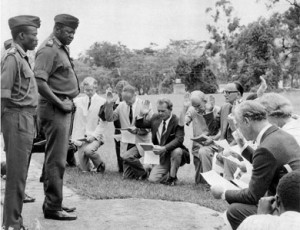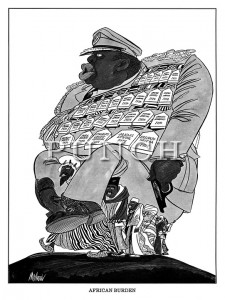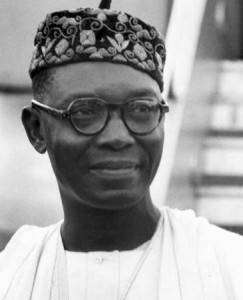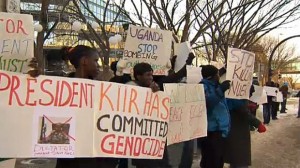A major catalyst for the eventual independence of the country of Angola was Jonas Malheiro Savimbi (August 3, 1934 – February 22, 2002). Savimbi was a very proud and patriotic man, devoting his life to the rectification of his homeland, which had been compromised under Portuguese rule. Savimbi was an honored Angolan military and political leader, whose reverence mainly stemmed from his founding of the National Union for the Total Independence of Angola (UNITA). UNITA was a guerrilla warfare group aimed at attacking Portuguese colonial rule. However, it was not the only group aimed at overcoming Portuguese colonialism. It was in competition with two other guerrilla groups: the Movimento Popular de Libertaccao de Angola (MPLA), the first founded group in 1956, and the Frente Nacional de Liberation of Angola (FNLA), which was founded second in 1957. UNITA was founded last in 1966.
The start of Savimbi’s career began with his inclusion within the MPLA’s youth division in the 1960s. The MPLA helped Savimbi to mold himself into an ideal activist, and he became a force to be reckoned with. Not only did he receive activist training, but Savimbi was also an experienced soldier. He received military training in China and became a successful guerilla fighter, who used these learned tactics in warfare and became infamous for them. Because of this training, Savimbi drew the attention of both Chinese and American policymakers.
Savimbi’s motives can be brought to question regarding whether he was truly aimed at the liberation of Angola, or if he was simply aimed at procuring an elevated status, or perhaps a more balanced delegation of power. Some of his actions could be called selfish because, even after succeeding in retrieving Angolan Independence, Savimbi continued to wage a war…now against, his former ally, and an organization which he had once been a part of, the MPLA. After Angola declared independence, MPLA assumed control of Angola. Its president became the president of the entirety of Angola and, doubly, Savimbi’s greatest enemy. It has since been found that Savimbi went so far as to sign a pact with Portuguese authorities to help him fight the MPLA. Savimbi’s feud with the MPLA, which lasted from 1974-2002, ended with his death at the hands of the MPLA, or Angolan government.









 The Mahdist movement under the leadership of Mohamed Ahmed Almahadi had a significant role in mobilizing the national passion and feelings of the Sudanese people. There were also some tribal and national movements at that time, but they were very weak and the connection between the Sudanese people themselves was also weak which made these movements loose their strength and ability to have an effect.
The Mahdist movement under the leadership of Mohamed Ahmed Almahadi had a significant role in mobilizing the national passion and feelings of the Sudanese people. There were also some tribal and national movements at that time, but they were very weak and the connection between the Sudanese people themselves was also weak which made these movements loose their strength and ability to have an effect.